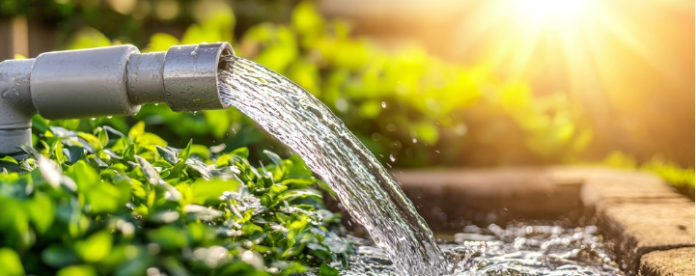We live at a time when access to information exposes us to a cornucopia of truths, half-truths, and outright lies. Discernment is not always the easiest task in the world. Take municipal tap water. How much do you know about it? Can you tell the difference between tap water truths and myths?
There have been isolated incidents involving municipal water found to be unsafe for residents. But by and large, most municipal water systems are trustworthy. Yet there are those who would have us believe our tap water is dangerous. This is just one example of having to discern between truth in fiction.
In an effort to point you in the right direction, here are five things every homeowner should know about municipal tap water:
1. It Is Highly Regulated
First and foremost, tap water is drinking water. It is also highly regulated by the federal government. Municipal water systems are subject to the Safe Drinking Water Act (SDWA). The Environmental Protection Agency (EPA enforces the legislation). Between the legislation and additional EPA regulations, 90 potential contaminants are kept out of community drinking water.
In addition, states have their own regulations that may go above and beyond federal standards. And of course, municipal water suppliers are required to file annual Consumer Confidence Reports detailing water safety.
2. Treatment Is Comprehensive
Next, municipal water is comprehensively treated before it is ever sent to household taps. It is treated to remove impurities, including chlorine and chloramines. Treatment does not necessarily remove minerals, which is why municipal water can still be as hard as well water.
Superior Water & Air, a Utah plumbing and HVAC contractor, says the Beehive State is a prime example of a state with extremely hard water despite municipal treatment.
3. Contamination Can Occur
Despite comprehensive water treatment strategies, tap water contamination can still occur. This is why municipalities are required to test water on a regular basis. That’s why they are required to file reports on water quality.
Many contaminants found in tap water are introduced after treatment. For example, lead is a contaminant in cities and towns where older lead pipes still carry tap water to homes.
4. Serious Health Risks Are Rare
Municipal tap water in the U.S. is generally considered safe. Municipalities go out of their way to make sure they are delivering clean, safe water to local homes. As such, serious health risks associated with tap water are rare. But rare does not mean impossible.
Consuming contaminated water can lead to everything from gastrointestinal issues to more serious diseases. For this reason, municipalities issue boil-water notices if they are ever concerned about water supply contamination. In the most extreme cases, they tell local residents not to consume the water at all.
5. Homeowners Can Make It Better
Finally, homeowners are never prevented from making their tap water better. Those who choose to have it tested by certified labs can do so. Homeowners can also install water filters, treatment systems, and water softeners.
Regularly running faucets and flushing toilets will prevent stagnant water buildup. Likewise, cleaning aerators gets rid of settlement and mineral buildup that can otherwise make water feel and taste bad.
It’s unfortunate that so much controversy surrounds municipal tap water. Municipal water may not be identical to what you could pull out of a natural spring deep underground, but it is also not a ticking time bomb waiting to explode on you and your family. Tap water is safe to consume and bathe with. Unless your city has reported specific problems, you have nothing to worry about.
